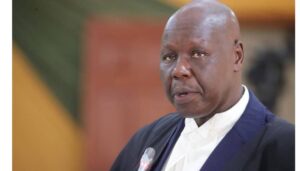Students from rich families to pay more university fees if the latest govt proposal sails through
Students from rich families to pay more university fees if the latest govt proposal to ease the cash crunch sails through.
In the most recent effort to ease a severe budget shortage in the institutions and reduce dependency on the Treasury, students from wealthy families will pay more for their education at public universities.
The University Funding Board (UFB), a State organization that supervises the distribution of student funding to universities, is advocating for a reduction in government support for wealthy children attending universities.
The evaluation will also have an impact on government-sponsored students in private colleges who get at least Sh70,000 annually, regardless of their financial situation and depending on the degree they are pursuing.
Under the current funding structure, the government is anticipated to cover 80% of the cost of degrees for each student, with students in public universities spending approximately Sh28,000.
The financing board, with the backing of the Treasury and university vice-chancellorswants the allocations reassessed to take the students’ financial situation into account.
Due to rapid expansion, decreased State funding, and a sharp decline in enrollment in self-sponsored programs following the government’s decision to fully fund students earning the minimum C+ entry grade and above on the Kenya Certificate of Secondary Education (KCSE) exams, public universities have been experiencing financial strain in recent years.
Due to the fact that they cover the whole cost of programs that can cost over Sh600,000 per year for those like medicine, students who enroll in the parallel degree programs have over the years produced billions of shillings for the institutions.
Now, UFB and vice-chancellors want students from wealthy families to pay the full or a larger share of the cost of degrees, starting with next year’s intake.
Kenya Kwanza asks Kenyans to prepare for tough economic times that could last for a year
“This policy brief recommends a gradual introduction of targeted free tuition to shift the burden of higher education funding to only needy and bright students,” UFB says.
“Evidence has shown that a number of households in Kenya, especially those in the middle and upper-income quotients, may not require any financial support to put their children through university education.”
The State will have students vetted by the Higher Education Loans Board (Helb) when disbursing funding, with the rich locked out.
Scholars cite scenarios where parents pay Sh175,000 annually for a pupil in Kabarak Primary School and over Sh200,000 in the institution’s secondary schools and less than Sh50,000 at their university section under government sponsorship.
State support per student has dropped from 80 percent of the cost of a degree to the current 48 percent on the back of increased enrolment.
The drop reduced the flow of State funds to the troubled public universities, forcing some of the institutions to scrap courses, shut down campuses as well as resort to pay cuts and hiring freezes.
The funding board estimates that the funding gap for government-sponsored students in public universities will hit Sh96.27 billion in the year ending next June, from the current Sh27 billion.
Also read,
President Ruto reorganizes government placing budget policy, and economic affairs under his office
Kenya’s dollar import cover sinks to a seven-year low amid a high inflation rate
Russian security official warns of World War Three amid threats by Putin to deploy nuclear weapons
Follow us




